In the context of strong globalization and digital transformation, high-quality human resources in basic sciences , key engineering and strategic technologies have become key factors for sustainable development and enhancing national competitiveness.
However, in reality, human resources in these fields are still limited in quantity and quality, not meeting development requirements.
Building a strategic scholarship policy is considered one of the effective solutions to attract and promote the development of high-quality human resources in key areas of the country.
Policy is still fragmented
According to current regulations, publicuniversities must allocate at least 8% of tuition revenue to provide scholarships to encourage students' learning, while private universities must allocate at least 2% of tuition revenue.
These policies have been effective in attracting learners and improving the quality of input for training sectors.
Ho Chi Minh City University of Technical Education is a leading unit in training in technical technology, with the majority of STEM (Science, Technology, Engineering, Mathematics) students.
Dr. Tran Thanh Thuong, Head of Admissions and Student Affairs Department, Ho Chi Minh City University of Technical Education, said that the cost of training in STEM majors is often higher due to the requirements of laboratories, practice, projects, etc.
Project-based learning programs can also put financial pressure on students and their families, so scholarships and tuition assistance become important levers to help students feel secure in pursuing these majors.
Not only reducing the burden of study costs, scholarships have become an effective policy tool to attract and increase both the quantity and quality of input into STEM fields.
Reality shows that the allocation of scholarships is still "equal", not prioritizing according to the level of difficulty, difficult-to-enroll majors, and key majors.
Furthermore, there is currently no national scholarship policy to attract students to study some cutting-edge basic sciences, key engineering and strategic technologies...
Current policies are still mainly social support, not oriented towards attracting and developing talents, not closely linked to human resource development strategies, especially in training basic science and engineering-technology fields which have high costs and require long-term investment.
Scholarship and financial support policies for postgraduate training, including master's and doctoral levels, are limited and not clearly defined.
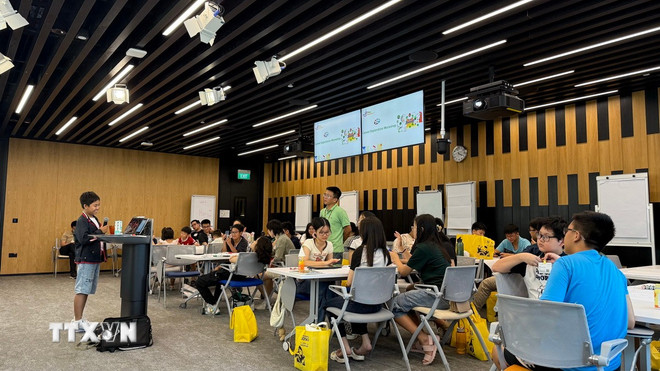
According to the Department of Students, Ministry of Education and Training, currently, students tend to choose economic and service majors, paying little attention to basic sciences, engineering and technology, leading to an imbalance in the human resource structure.
Studying basic sciences and strategic technologies requires students to have a good foundation, a long learning process, high tuition fees, and unclear initial job opportunities, so it is difficult to attract students without effective support policies.
The project on training high-tech human resources by 2035, with a vision to 2045, aims to have 40% of students studying STEM fields by 2035. However, the rate of students studying STEM fields is still low compared to developed countries.
Although the number of STEM students has increased by more than 10% each year in recent years, this group only accounts for about 27-29% of the total university student population.
This shows that there is a need for stronger attraction policies to encourage learners to choose STEM majors, especially in the context of the 4.0 industrial revolution and digital transformation.
Mr. Nguyen Van Chien, Deputy Head of the Department of Policy Research and Strategy for Education Development, Vietnam Institute of Educational Sciences, said that the requirement is to have a national scholarship policy with clear orientation, sustainable resources, designed in the direction of connecting the State, schools-institutes and enterprises to improve investment efficiency, attract talent and serve the goal of developing strategic, breakthrough and long-term industries and fields.
Experience from countries shows that scholarship policies not only provide financial support but also come with strict conditions and requirements on academic quality, research results and national service obligations after graduation.
On the other hand, mobilizing businesses, social organizations and training institutions to participate in strategic science, engineering and technology scholarship policies is an inevitable trend in investing in developing high-quality human resources.
Strategic policy
Based on practical requirements, the Ministry of Education is developing a national scholarship policy for majors in the fields of basic science, key engineering and strategic technology.
According to the draft Decree, the target learners of this policy are students, graduate students, and researchers studying in fields of basic science, key engineering, and strategic technology.
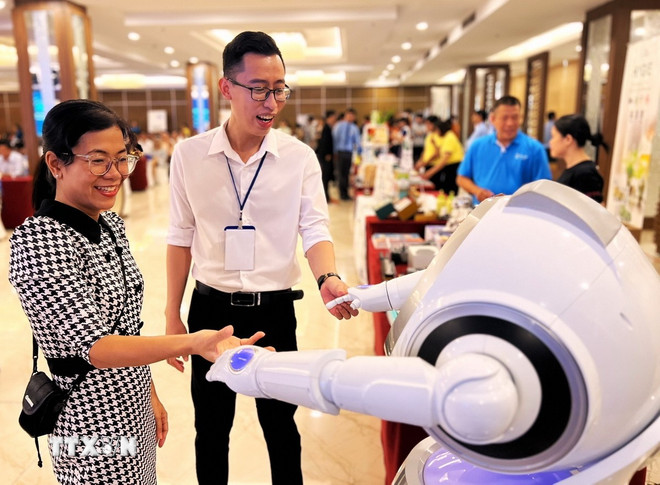
The list of industries enjoying policies can be adjusted to suit each development stage, according to the Government's decision.
Students will be awarded a 100% scholarship for excellent academic results, 70% for good and 50% for fair. The scholarship level is awarded according to the tuition fee ceiling as prescribed by the Government.
Along with the scholarship, students in these fields will receive a living allowance of VND3.63 million/month from the State. The scholarship period and living expenses are determined based on the actual number of months of study at the school, up to a maximum of 10 months/school year.
This scholarship and living allowance policy is expected to apply to higher education institutions that train in the fields eligible for the policy, including both public and non-public.
Dr. Trinh Thanh Deo, Head of the Department of Examination and Quality Assurance, University of Science, Vietnam National University, Ho Chi Minh City, said that this policy clearly demonstrates the State's orientation and interest in developing high-quality human resources, especially in areas that play a fundamental and strategic role in the country's sustainable development.
The list of industries benefiting from this policy needs to be updated periodically, closely following the country's socio-economic development strategy, especially in areas such as artificial intelligence, quantum electronics, biotechnology, new materials technology, renewable energy, cyber security... and actual human resource needs from the labor market.
On the other hand, in order to diversify scholarship resources, the State also has a mechanism to encourage enterprises, scientific and technological organizations and social organizations to invest in scholarships, especially technology and engineering corporations that need to recruit highly qualified human resources; build scholarship programs co-sponsored by the State and enterprises, while ensuring transparency in selection and output commitment.
Dr. Tran Thanh Thuong, Head of Admissions and Student Affairs Department, Ho Chi Minh City University of Technical Education, stated that to improve the long-term effectiveness of the policy, scholarships should be integrated with academic and career counseling programs to support both professional and soft skills, helping learners become more confident and reducing the rate of dropping out of the program midway.
Financial policies also need to develop a commitment mechanism, requiring scholarship recipients to sign an agreement to work or contribute to the field, industry or sponsoring unit after graduation for a certain period of time.
Commitment to work not only helps ensure human resources to serve society, but also increases students' responsibility for the awarded scholarships./.
Source: https://www.vietnamplus.vn/xay-dung-chinh-sach-uom-mam-nhan-tai-cac-nganh-khoa-hoc-cong-nghe-chien-luoc-post1046304.vnp



![[Photo] General Secretary To Lam works with the Standing Committee of Quang Binh and Quang Tri Provincial Party Committees](https://vphoto.vietnam.vn/thumb/1200x675/vietnam/resource/IMAGE/2025/6/25/6acdc70e139d44beaef4133fefbe2c7f)
![[Photo] First training session in preparation for the parade to celebrate the 80th anniversary of National Day, September 2nd](https://vphoto.vietnam.vn/thumb/1200x675/vietnam/resource/IMAGE/2025/6/25/ebf0364280904c019e24ade59fb08b18)


![[Photo] More than 124,000 candidates in Hanoi complete procedures for the 2025 High School Graduation Exam](https://vphoto.vietnam.vn/thumb/1200x675/vietnam/resource/IMAGE/2025/6/25/fa62985b10464d6a943b58699098ae3f)


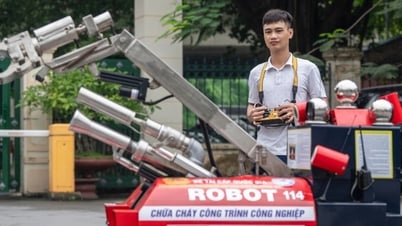



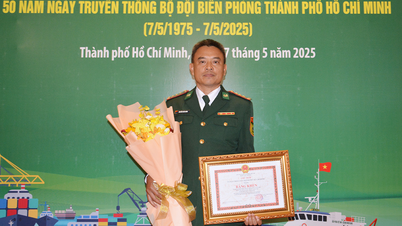


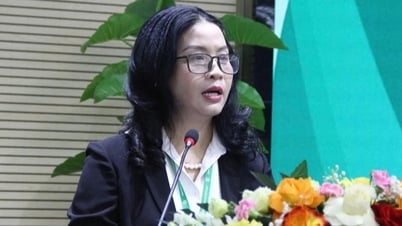
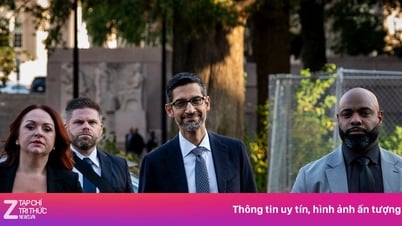

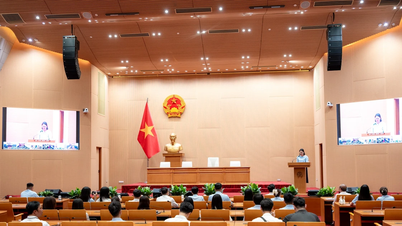

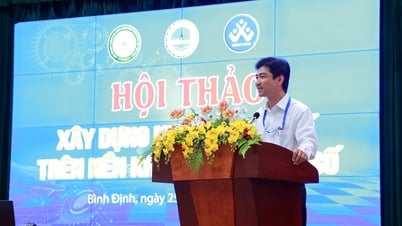

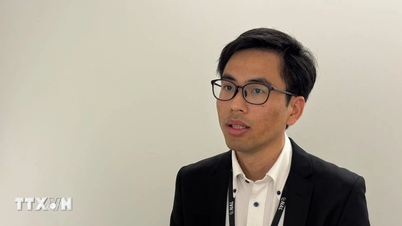





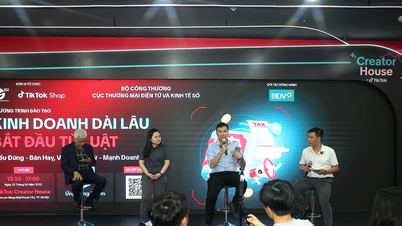
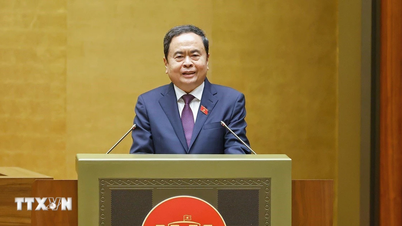

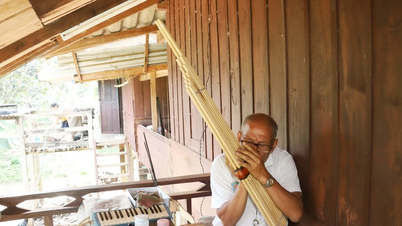
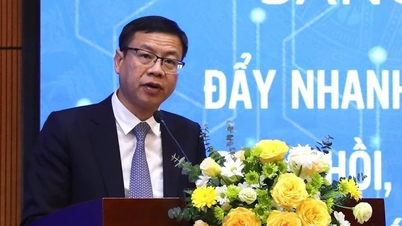
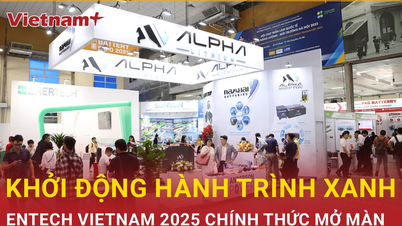















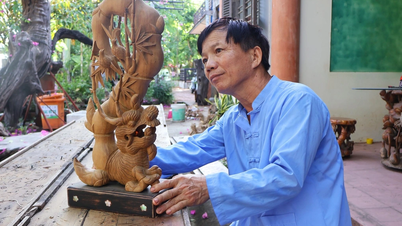














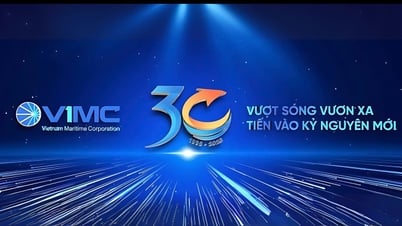










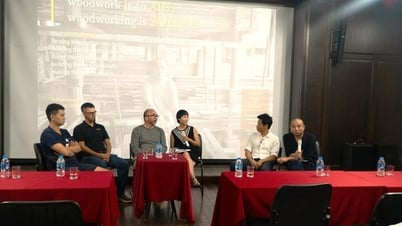
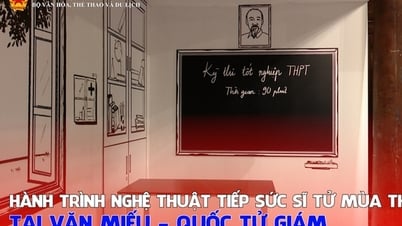


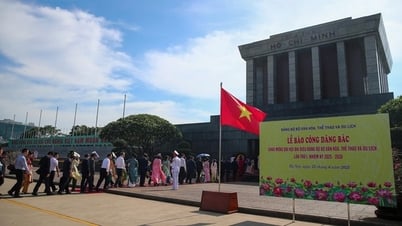
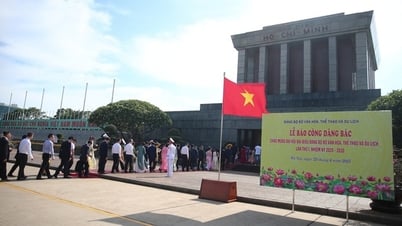
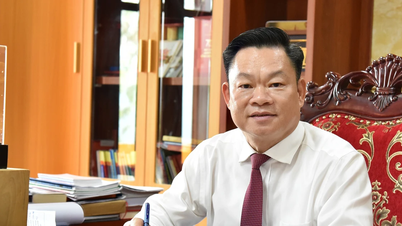

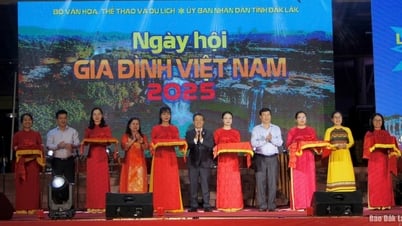





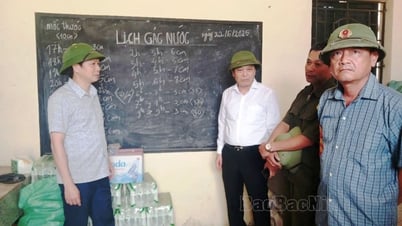

















Comment (0)